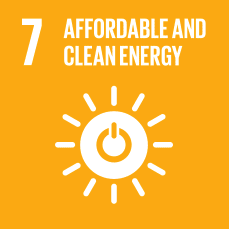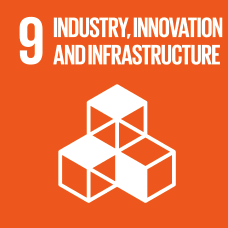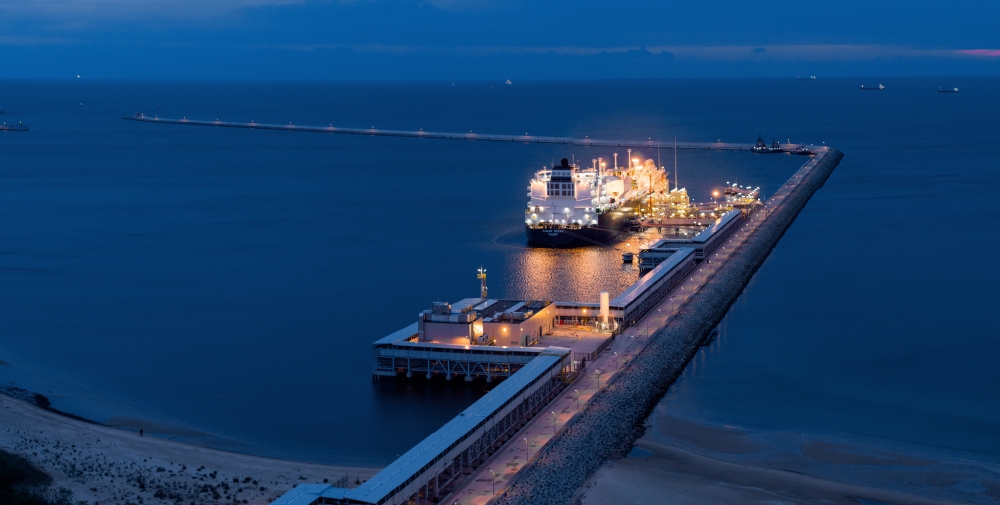





The importance of energy security is further stressed in strategic documents endorsed at the highest central government level, such as the ‘Energy Security and Environment - 2020 Outlook’ Strategy adopted by resolution of the Council of Ministers in April 2014, or the 2017 ‘Strategy for Responsible Development until 2020 (with 2030 Outlook)’, which states that “ensuring energy security calls for diversification of energy sources, raw materials, as well as energy generation and distribution methods. In the short term, this applies to the directions of supply and the suppliers of natural gas and to continuing expansion of gas storage capacities”. This approach was confirmed by the Ministry of State Assets in the draft Polish Energy Policy until 2040 and in the National Energy and Climate Plan for 2021-2030.
From PGNiG’s perspective, the factors of key importance to ensuring energy security, out of those highlighted by the Council of Ministers, include:
It is estimated that by 2030 the demand for natural gas in Poland will grow by over 30% relative to 2015. It will be driven, in particular, by the expanding market for CNG and LNG fuels used by vehicles, and the associated development of distribution and supply infrastructure, which will follow that growth trend. Another major indicator of the upcoming increase in demand for natural gas is the construction of new gas-fired power generating units and the role of natural gas as a transition fuel in the decarbonisation of the Polish economy.
The PGNiG Group is the principal importer of natural gas to Poland. A considerable portion of gas supplies still comes from countries east of Poland, but this share is gradually shrinking, mainly due to growing volumes of LNG imported from other countries, including the USA, Qatar and Norway. The President Lech Kaczyński LNG Terminal in Świnoujście, being a key element of Poland’s gas infrastructure which will further support diversification of gas supply sources, is of crucial importance both for Poland and the entire CEE region. Its current regasification capacities are fully utilised by the PGNiG Group, which clearly demonstrates the Group’s leading role in diversifying the supply sources of energy commodities.

In addition to the Świnoujście LNG terminal, both existing and planned cross-border gas pipelines operated by GAZ-SYSTEM, as well as the Baltic Pipe project implemented by Polish and Danish TSOs, are important infrastructural elements which will contribute to further diversification of Poland’s gas supply sources.
PGNiG holds several dozen licences for exploration for and appraisal of hydrocarbon deposits in Poland, as well as over 200 hydrocarbon production licences, which positions the PGNiG Group as the leader of the country’s crude oil and natural gas production. Not only is this area of the Group’s activity consistent with the objective set out in the ‘Strategy for Responsible Development until 2020 (with 2030 Outlook)’, namely restoration of the country’s gas production potential based on the resources available in Poland to the extent which will satisfy demand for gas, but it also constitutes an inherent part of the Group’s business operations in the domestic mining market.
As a global commodities market player, the PGNiG Group also engages in exploration and production activities outside of Poland. The Group’s long-standing efforts in this area contribute to diversification of supply sources of energy commodities to its home country. The access to resources located outside of Poland is considered an important driver of further diversification of supplies, especially in the context of the Baltic Pipe project which is aimed at building a new gas supply corridor on the European market from North Sea fields.
Through Gas Storage Poland, the PGNiG Group acts as the storage system operator responsible for the operation of gas storage facilities, provision of storage services, as well as the use, maintenance and overhauls of storage facilities and equipment. Storage services are offered in three time horizons (long-term, short-term and intraday storage), which makes the Group’s offer fully flexible.
The PGNiG Group currently operates seven underground high-methane gas storage facilities linked to the gas transmission system, as well as two nitrogen-rich gas storage facilities. As part of the ‘UGSF working capacity development programme’, the Group also takes steps to increase its gas storage capacities. The UGSF’s target capacity, as set out by the Ministry of Energy, is expected to reach approximately 4 bcm in 2030.
Pursuant to Minister of Energy’s Regulation (Journal of Laws of 2018, item 1814), in 2018 PGNiG Obrót Detaliczny was designated to act as the supplier of last resort for end users of gas, in particular those connected to the PSG’s or OGP Gaz-System’s network, in the event that their current supplier discontinues gas supplies through its own fault. In such a case, the DSO or TSO, acting for and on behalf of the customer, will enter into a relevant agreement with the supplier of last resort in order to guarantee uninterrupted gas supplies to end users. The customer is be notified of such agreement by PGNiG within 30 days.
The PGNiG Group’s business operations have a direct impact on Poland’s energy security, which – in the context of sustainable development – is reflected in our objective of providing customers with uninterrupted access to natural gas, electricity and heat, based on diversified sources and directions of natural gas supplies. This objective is understood as continuous pursuit by the Group of development in the area of natural gas and crude oil production and gas storage, as well as ensuring diversified sources of supply for customers. Against this backdrop, key business projects involving gas exploration and production or procurement, or the day-to-day business of electricity and heat generation pursued by the Group companies, become all the more important.
The PGNIG Group constantly strives to expand its reserves and production of natural gas and crude oil and to ensure their uninterrupted supply to customers. To this end, the Group pursues a policy to diversify natural gas imports to Poland and implements exploration and production projects.
In the context of the expanding portfolio of PGNiG’s services, including those related to the supply of electricity and heat, the Group plays an increasingly important role in ensuring Poland’s energy security.